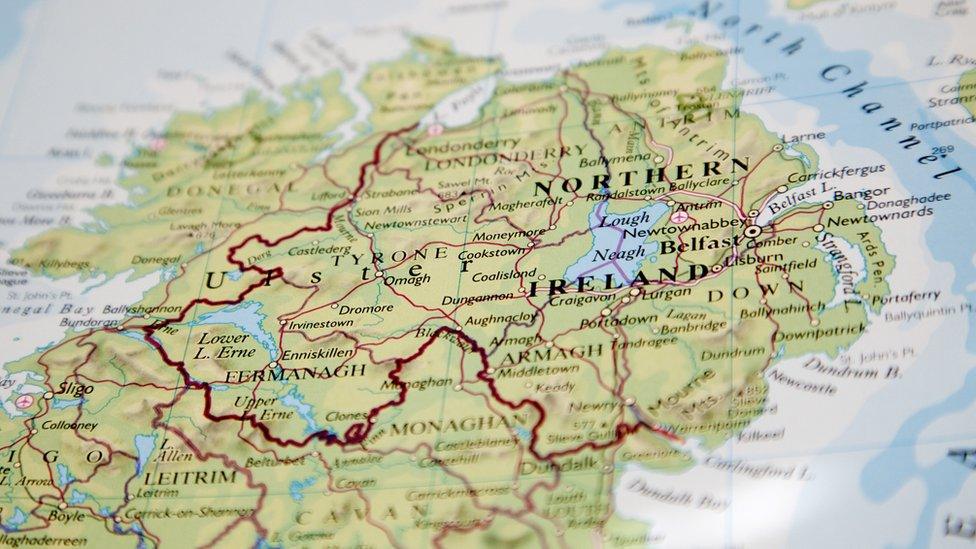NI 100: Centenary textbook for A-Level history students
- Published
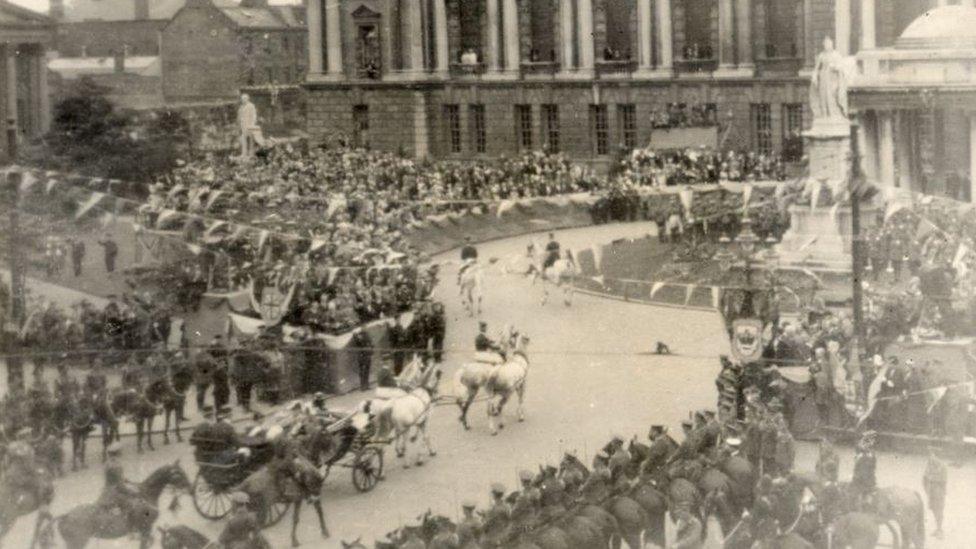
The opening of the Northern Ireland parliament in 1921 (credit: PRONI Reference D3480/22/1 with kind permission of the Deputy Keeper of the Records)
It is one of the most turbulent periods in Irish history and many events still reverberate a century on.
The years 1900-1925 saw the Third Home Rule Bill, WW1, the Easter Rising and partition among other momentous events.
Now the Public Record Office of Northern Ireland (PRONI) has compiled documents and images from the period aimed at A-Level students.
Ireland 1900-1925: Crisis, War and Revolution is also available for anyone to access on the PRONI website.
Dr Timothy Bowman, from the University of Kent, and the History Teachers Association of Northern Ireland (HTANI) have also been involved in putting the publication together.
Many A-Level History students study the partition of Ireland period as part of their course, but a previous Steps to Partition document pack for A-Level students produced by PRONI was more than 40 years old, so the new publication is long overdue.
A new state
Most historians date 3 May 1921 as the foundation of the state of Northern Ireland.
The new publication includes a memorandum setting out proposals for the new administration of Northern Ireland from 25 February 1921.
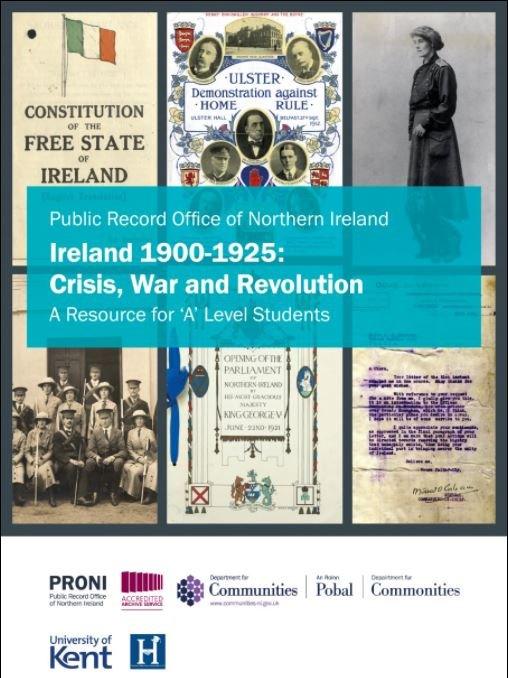
The new textbook will replace previous material which was compiled more than 40 years ago
It also shows attempts to organise and streamline the government of the new state.
"There are in Ireland some 30 different departments… responsible for the enforcement of the several functions of domestic government," it said.
"For a variety of obvious reasons it is highly desirable that the departments which are intended to form the basis of Ulster Government should crystallise into a much more restricted number."
The new government eventually settled on six ministries under the first Prime Minister of Northern Ireland, Sir James Craig.
There were departments of finance, home affairs, labour, education, agriculture and commerce.
Important historical documents
The documents also include a 1922 letter from the chair of the provisional government of Ireland Michael Collins to Craig on the release of political prisoners on both sides of the new border.
"I should like to lay stress on the urgency for the release of Bernard Sweeney about whom I wired you yesterday," Collins wrote to Craig.
"Sweeney's father is dangerously ill and his release at this juncture would be a graceful act which would be much appreciated."
But partition was also marked by violence in Northern Ireland with more than 550 people killed between July 1920 and July 1922 and many people driven from their homes.
A report by a police commissioner in Belfast from 3 January 1922 gives an insight into a night of trouble.
"About 11.25 pm, John Gribbon, 29 years, R.C. Painter, 28 Arnon St., was found shot dead in Kildare St," it records.
"It is not known how he met his death as heavy firing took place in the area.
"About 11 pm, a bomb was thrown, alleged to be from the top of an outgoing tram on Newtownards Rd. into the end of Foundry St. R.C. quarter.
"The bomb exploded but no injury was done."
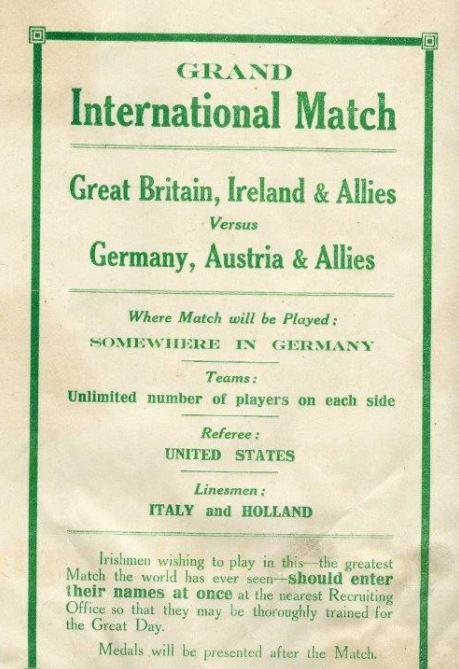
A 1915 war recruiting poster which compares the conflict to a 'grand international match' (credit: PRONI Reference LA/20/50/GA/5 with kind permission of the Deputy Keeper of the Records)
'Drastic changes'
Jim McBride from the History Teachers Association of Northern Ireland is one of the authors behind the new publication.
"The sources come across from the entire course, from about 1910, up to the Boundary Commission of 1925, and are designed to illustrate how things changed quickly in this period using viewpoints from a range of contemporary opinions in Ireland at this time," he told BBC News NI.
"As the Steps to Partition pack was published over 40 years ago we realised that drastic changes were needed.
"We looked at a range of unpublished PRONI sources selected from across the period that represented the opinions of as many key groups and figures as possible.
Mr McBride hopes that what they have selected helps those studying what is still a contested period of history.
"As historians we are well aware that some events in our shared history in Northern Ireland could still be contentious even 100 years later, " he said.
"Sources have been carefully selected and the historical commentaries are not afraid to challenge both Nationalist and Unionist reactions to major events from this period."
You can find out more about Northern Ireland's centenary year in the Year '21 podcast series here.
- Published2 May 2021
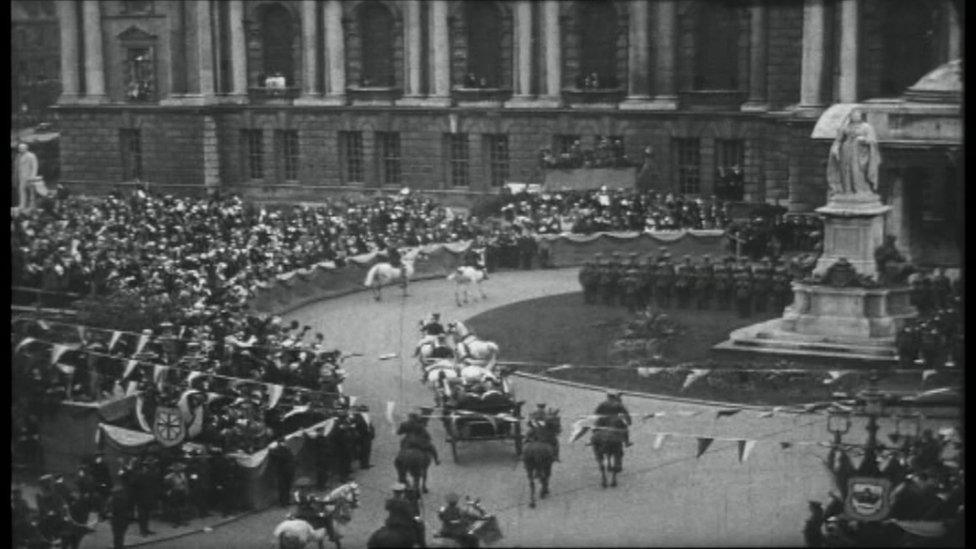
- Published30 April 2021
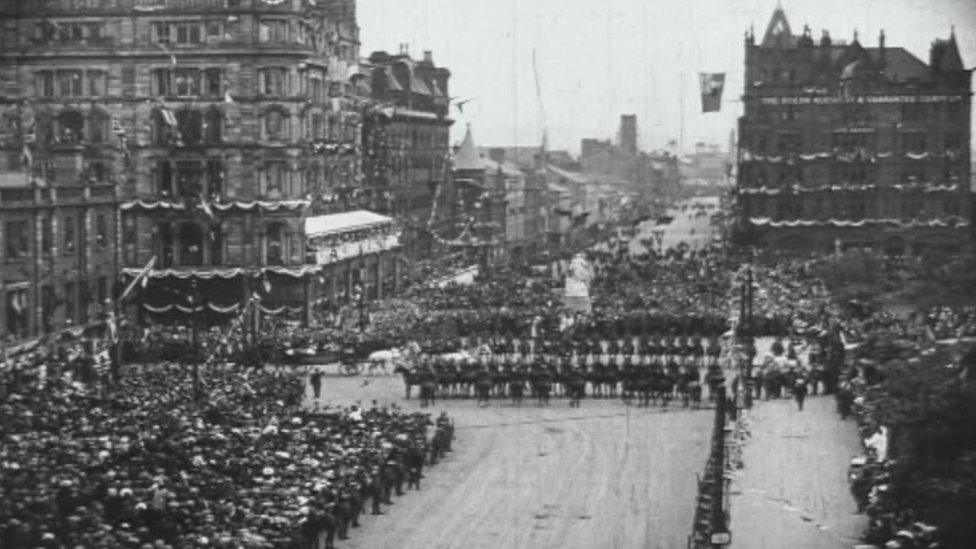
- Published5 May 2021
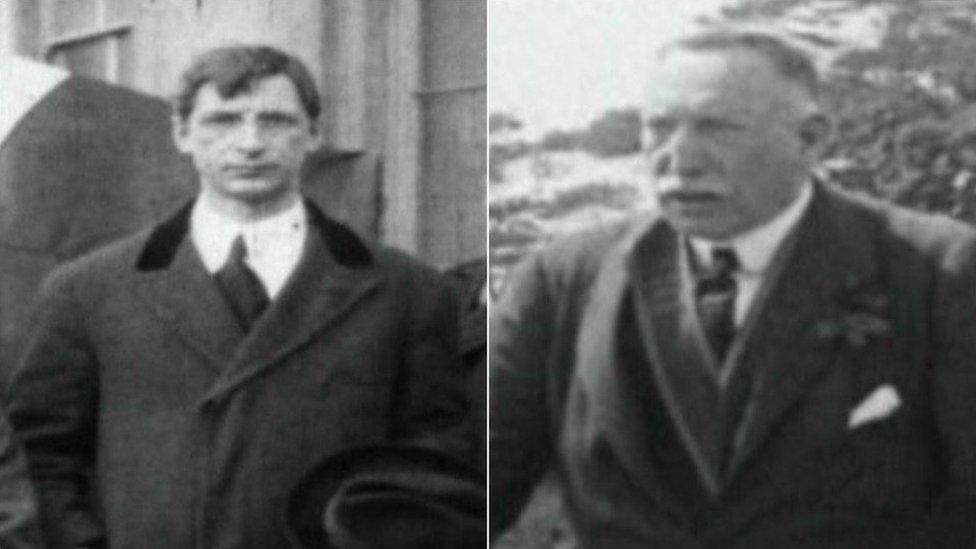
- Published24 December 2020
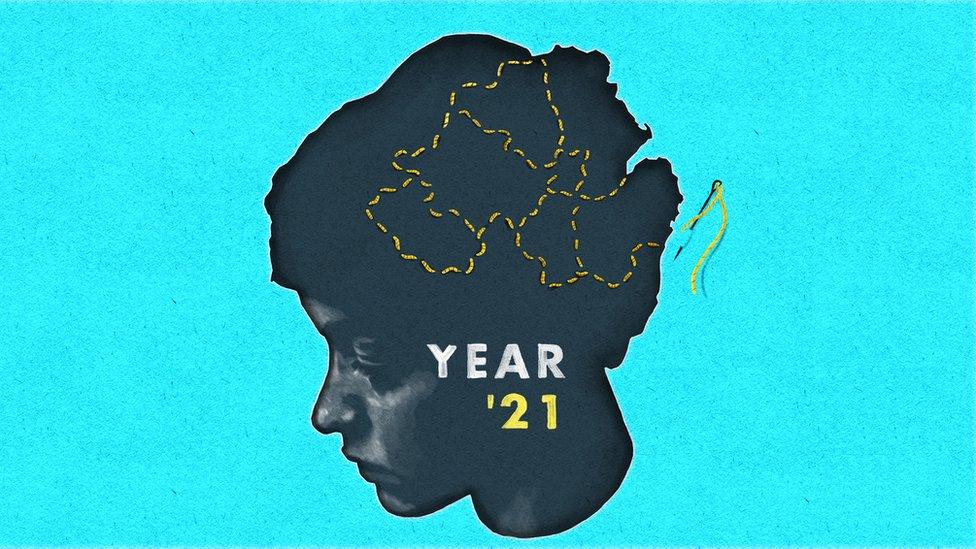
- Published3 May 2021
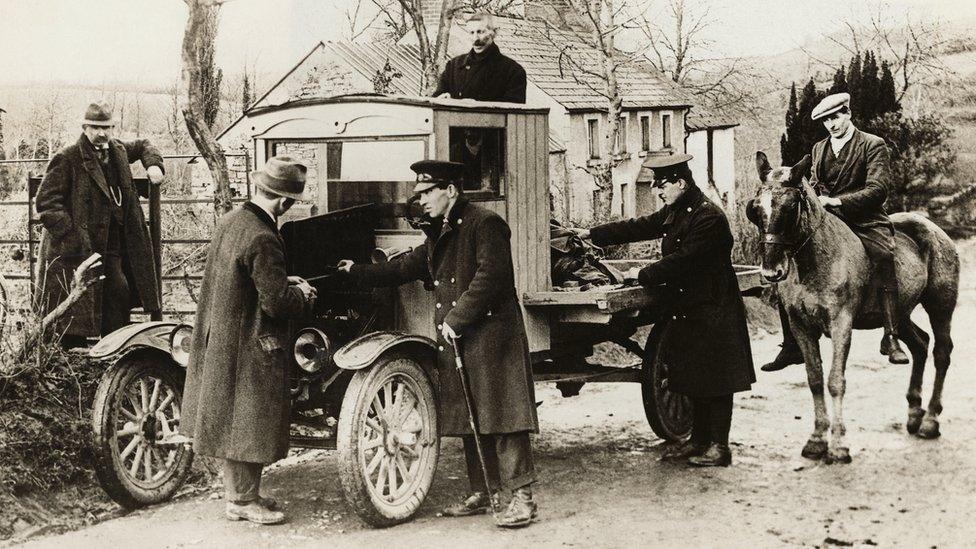
- Published3 May 2021
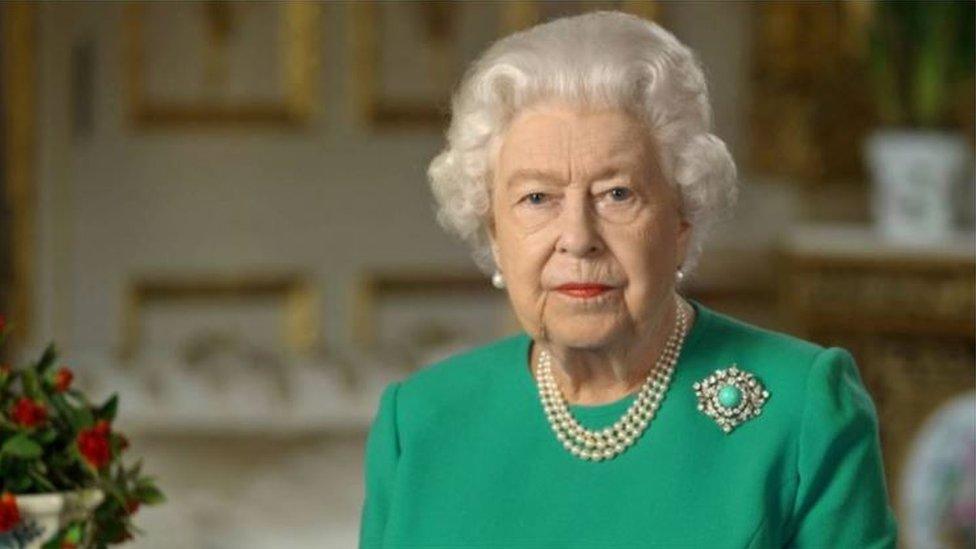
- Published12 March 2021
